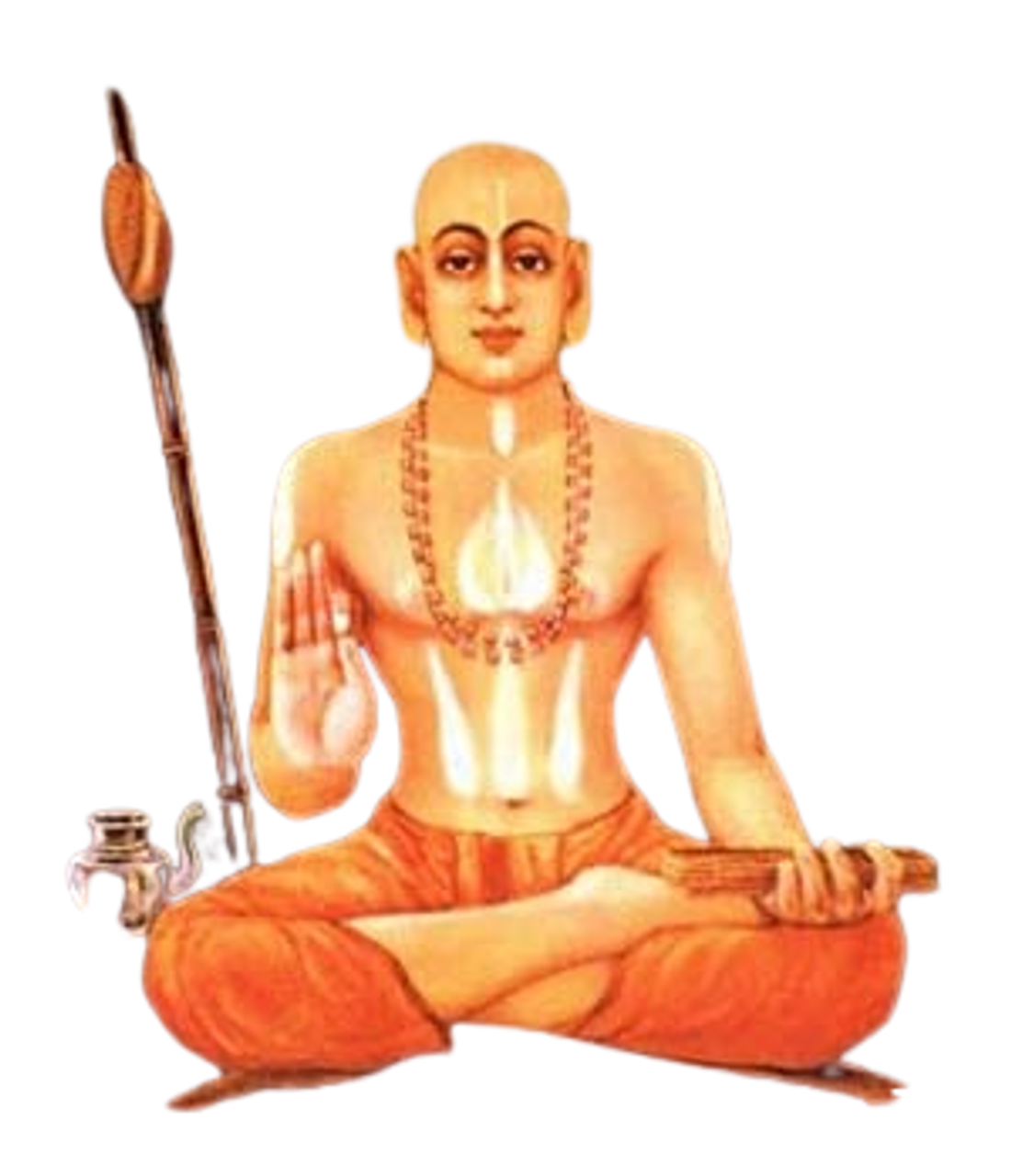
Madhvacharya CE 1199-1278 or CE 1238–1317 sometimes as Madhva Acharya, and also known as Purna Prajna and Ānanda Tīrtha, was an Indian philosopher, theologian and the chief proponent of the Dvaita (dualism) school of Vedanta. Madhva called his philosophy meaning "arguments from a realist viewpoint".
Madhvacharya was born on the west coast of Karnataka state in 13th-century India. As a teenager, he became a Sanyasi (monk) joining Brahma-sampradaya guru Achyutapreksha, of the Ekadandi order. Madhva studied the classics of Hindu philosophy, and wrote commentaries on the Principal Upanishads, the Bhagavad Gita and the Brahma Sutras (Prasthanatrayi), and is credited with thirty seven works in Sanskrit. His writing style was of extreme brevity and condensed expression. His greatest work is considered to be the Anuvyakhyana, a philosophical supplement to his bhasya on the Brahma Sutras composed with a poetic structure.[8] In some of his works, he proclaimed himself to be an avatar of Vayu, the son of god Vishnu.